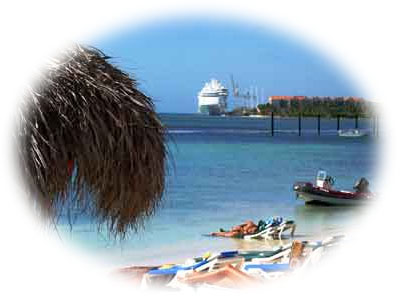Havana

The exotic capital of Cuba and largest city in the Caribbean is
a must-see for any visitor. For centuries, it has served as the
gateway to the Gulf of Mexico. And in 1982, Old Havana, the city's
historic centre, was declared a UNESCO World Heritage site. The
city's first building, overlooking the entrance to a protected bay,
dates back to 1519.
Today, Havana is the heart of the nation's busy political, scientific
and cultural life. Museums, theatres and concert halls, art galleries
and cultural institutions are popular venues. The National Ballet
of Cuba, the House of the Americas, the Foundation of New Latin
American Film and the National Folkloric Dance Group all have won
international acclaim. Both day and night, Havana continues to thrill
visitors anew.
Beaches
Havana likes to entertain on its many beaches. A few of them are:
Playa del Este
This beach outside Havana's east coast is where weekend and vacation
action takes place.
Playa Santa María del Mar
Is another beach to the east and it is just a lovely place to spend
the day.
Jibacoa and Puerto Escondido beaches
Located 45 km from Havana, they are an ideal destination to enjoy
all kinds of water sports, horseback riding and bicycling.
El Salado beach
This beach is protected by coral reefs so it is ideal for scuba
diving.
Flora
Fortunately, to discover Havana you don't have to spend all your
time indoors since several attractions are to be enjoyed in the
open air. Go to the Zoológico Nacional and the Zoológico
de la Habana, the Botanical Gardens, ExpoCuba and the Acuario National
(Aquarium).
The Lenin Park has all sorts of shows and activities for children
and the Morro-Cabana Park is a great option for those who like the
outdoors.
Outside the city, many of the beaches are flanked by cliffs and
mountains reaching up to 100 m. Some shores are protected by coral
reefs that can be explored by scuba diving or snorkeling. Escaleras
de Jaruco is the destination of choice for speleology.
History
Havana, the capital of the Republic of Cuba, was founded in 1519
by the Spanish conquistador and was originally christened La Villa
de San Cristóbal de la Habana. Established next to the Port
of Carenas, it became the most relevant port in the western hemisphere
for the treasures of the Spanish fleets being brought to the New
World.
The seat of the government, which had been in Santiago de Cuba,
was then moved to this city. Havana's strategic geographic position
was a major factor in its rapid growth, and in the decision to build
a sea wall in the 17th century.
Its urban development got a boost during the second half of the
17th century and it reached its peak within 200 years, when the
city began to expand beyond the walls encircling it. Havana remains
the political, cultural and economic heart of Cuba to this date.
Characteristics
Join Cuban fans to watch a baseball game, the national sport, and
cheer on your favourite team at the Havana Stadium.
Cigar aficionados will be thrilled to get some world renowned Cuban
cigars. In 1717, King Philip V established a royal monopoly on tobacco-growing
in Cuba and the country became known as the Estanco del Tabaco (the
tobacco shop).One of the most famous brands is the San Cristobal
de la Habana, named after the four fortresses of Havana. The company
boasts four sizes, all rich in flavours and fragrance.
Return to the TOP of Havana All Inclusive Resorts
|




